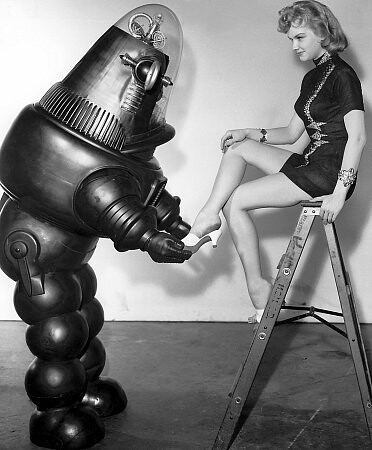This is a good comment because it articulates a very real problem for those in the psychotherapy profession. Over the years I have seen this issue raise itself with a whole variety of therapists many times and it is indeed a difficult circumstance for them and their significant others to deal with.

Sometimes clients develop strong feelings towards their therapists, sometimes positive, sometimes negative, sometimes sexualised and sometimes not. How is the spouse of the therapist meant to deal with this? A difficult question indeed and a very real one.
Is it reasonable for the spouse to feel jealous, threatened, excluded and so forth?
If they feel those things is it reasonable for the spouse to express their concerns to the therapist who is just doing his or her job.?
If they are express how is the therapist meant to respond to the spouse?
As you can see a veritable minefield of potential relationship ruptures (as they are fashionably referred to these days in the psychotherapy business).
However I need to place this in context. The psychology behind the positive transference is by no means exclusive to the counselling relationship. It happens in all areas of life and human relationships.

For instance in the work place. Take something a tad monotonous like the banking industry. There maybe a man who is respected in the banking industry, seen as talented in his field and has some power in the industry. As he goes about his business he will come across various women who know of his reputation. As they get to know each other positive transference feelings will develop in some instances and sometimes they will be strong transference feelings from the less powerful woman to the more powerful man.
This is no different to the psychology of the transference in the therapy setting. Obviously it is not appropriate for the client and therapist to have a relationship but for two people who work in the same industry like banking they can easily have a relationship and many indeed do. But as I said before the psychology behind the relationship is no different than the client therapist relationship. However the point at hand is positive transference feelings from one person to another are not exclusive to the therapy relationship.

However in therapy the feelings can get quite strong in quite a short space of time. Indeed the therapist and therapy setting are a perfect green house for such feelings to grow. Thus the questions cited above have special relevance to therapists and their significant others.
Graffiti
I work in the information technology field and affairs used to be very common, particularly when men and women were paired together on long-term projects. I believe it’s less common now because outsourcing shortens project lifecycles, and the Internet reduces travel and makes collaborating remotely easier. My husband would get jealous when I’d work with the same man for more than a few months. It’s hard not to become friends with someone you spend so much time with, particularly if there are only two of you, you’re traveling together a lot, and working very long hours in a shared workspace day after day. Sometimes it felt like being married to my colleagues, particularly during stressful times when we were tired and cranky. Of course, in that situation, even working with people the same gender can feel like being married! When you pass the point of caring what you look like and what you say…well…it’s a lot like being married.
ReplyDeleteYes KYLady,
ReplyDeleteI like your definition of being married = passing the point of caring what you look like and what you say. I must remember that one. Much more profound than; "Love means never having to say you're sorry".
Good comment about work collegues and the effect on a marital partner
Graffiti
lol!
ReplyDeleteKahless
(one of those less so popular bankers)
I guess the therapist is the best possible person to help their spouse work through this transference(?)
ReplyDeleteWell Evan,
ReplyDeleteYou raise another good point like Zbig did with the comment on the previous post. When therapists have their own relationship problems what do they do.
Cheers
Tony